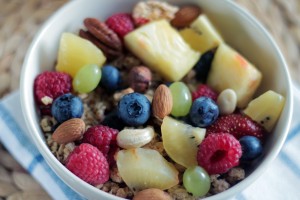There are a number of dietary measures that aim to support not only your well-being at menopause but also your long-term general health. Find out more about foods that help with menopause.
Why Does It Matter What Foods You Eat During Menopause?
There are Foods That Help With Menopause and Some That Don’t!
Choosing what foods to eat during menopause can have a dramatic impact on how you experience your menopausal years and beyond.
 You can avoid foods that will wind up the symptoms making them worse. And add in those that support and soothe your system. It can be a better way to eat for many women approaching and during their menopause. It also forms a good basis for a healthy diet for the rest of the family. So you are doing everyone a favour by taking more care of yourself.
You can avoid foods that will wind up the symptoms making them worse. And add in those that support and soothe your system. It can be a better way to eat for many women approaching and during their menopause. It also forms a good basis for a healthy diet for the rest of the family. So you are doing everyone a favour by taking more care of yourself.
The aims are to reduce anything that makes the liver, kidneys and adrenals work harder. To keep your blood sugar levels as stable as possible. And to build in foods that actively support your system at menopause.
What are the Foods That Help With Menopause?
- Eat a wide variety of fresh and wholegrain foods, and drink plenty of water.

- Eat good sources of the essential fatty acids (Omegas 3, 6, 7 & 9) – oily fish, seeds, nuts and wholegrains.
- Phytoestrogens: these are foods that provide a plant form of oestrogen which can be a useful top-up for some women. Try to eat a wide range of these foods, not just large amounts of one or two sources. This is a gentler way to gain the benefits without some of the concerns around taking high dose forms of phytoestrogens over long periods of time. In addition to well-known herbs and soya, there are a number of foods that help with menopause. Including fruits like apples, cherries and plums; various beans, pulses and vegetables including adzuki beans and chickpeas, alfalfa sprouts and carrots.
- The jury is still out on the pros and cons of soya. However, it may be that fermented soya products such as tempeh, fermented tofu, miso and traditional soy sauce are the most likely forms to confer health benefits and to minimise potential downsides. Fermentation increases the vitamin and mineral content but reduces the phytates, protease and enzyme inhibitors and isoflavones.
- Complex carbohydrates – depending upon the kind of diet you follow, you may be reducing the amount of carbohydrates you eat. However, as a general guide, it can be helpful to choose low and medium glycaemic index foods when you do have them. These are whole-grains, beans and vegetables. They help to even out your blood sugar levels instead of the quick sugar highs and lows of the processed and refined sugars. They provide nutrients, and are valuable sources of soluble and insoluble fibre.
- Just as an aside about night sweats. If you wake and then sweat it may be low blood sugar instead of a night sweat. Night sweats can also be exacerbated by low blood sugar. For some women, a low Glycaemic Index snack before bed might be helpful to try and see if it helps.
Foods to Avoid During Menopause
- Sugar and other refined carbohydrates are worth avoiding or reducing as much as possible. They are fast-burning calories that do not contribute towards our health in general. They also make it harder to maintain a stable blood sugar level. This can in turn exacerbate menopausal symptoms.
- Artificial sweeteners – these may well be worth reducing or avoiding as they are incredibly sweet and I am not personally convinced that it is helping our culture at large in arriving at and maintaining a healthy relationship with our food and weight. There are also some concerns about side-effects from sweeteners like aspartame. Is it worth it?
- Stimulants – spicy foods, tea, coffee and caffeinated drinks can exacerbate hot flushes and night sweats.

- Alcohol – many women find alcohol aggravates menopausal symptoms. It is a good idea to reduce intake at this time in our lives. Reducing or avoiding it can often help with menopausal symptoms.
- Red meat and dairy products can contribute towards increasing inflammatory responses, which has a number of implications for our short and long-term health. If you eat these, it can be worth reducing the amount, choosing organic and the best quality you can find.
- Salt is worth keeping to a minimum, as rock or sea salt. It has profound effects on blood pressure, water balance and retention.
Thank you for reading about foods that help with menopause. I hope you find it to be helpful and to make a difference. You can find other blogs about Menopause which may also be of interest.
If you are interested in menopause coaching or therapies, in clinic in West or East Sussex, or via Skype, you can book an initial free mini-consultation to see if my approach might suit you, please do contact me.

